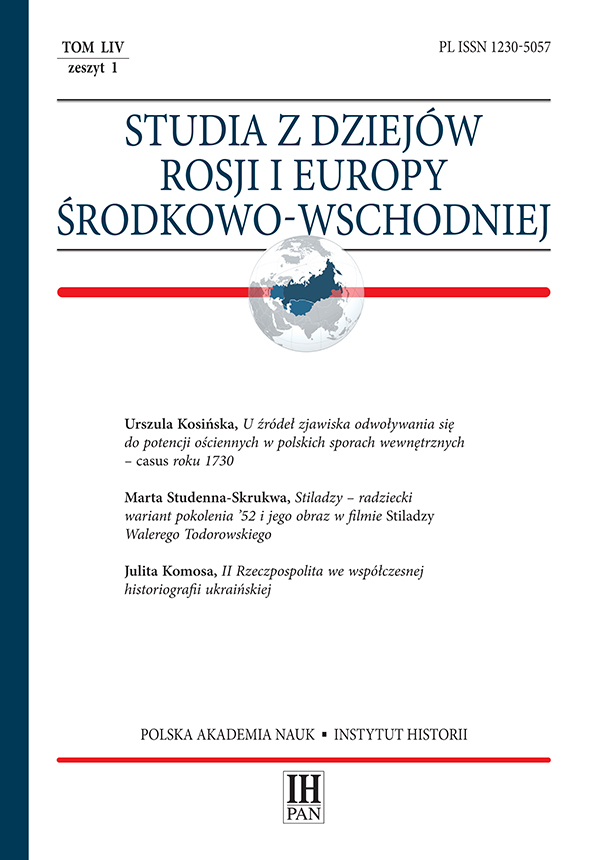U źródeł zjawiska odwoływania się do potencji ościennych w polskich sporach wewnętrznych – casus roku 1730
At the Origins of the Appealing to Neighbouring Powers in Internal Polish Disputes – the Case of the Year 1730
Author(s): Urszula KosińskaSubject(s): History, Diplomatic history, Political history, Modern Age, 18th Century
Published by: Instytut Historii im. Tadeusza Manteuffla Polskiej Akademii Nauk
Keywords: Polish-Lithuanian Commonwealth in the 18th century; Russia of the 18th century; Polish diplomacy in the 18th century; Teodor Potocki; Anna Ivanovna; August II; Antoni Potocki’s mission to Moscow;
Summary/Abstract: In 1730, on behalf of Primate Teodor Potocki, his nephew Antoni, Pantler of Lithuania, went to Moscow. Under the guise of congratulating his cousin Anna Ivanovna on her accession to the throne, the primate gave her a memorial in which he denounced the alleged plans for the partition, absolutism and succession of King Augustus II, hostile to the Commonwealth. In fact, the mission’s goal was to obtain Russia’s support in the fight against the king for the distribution of the offices of hetman, and especially the office of Grand Hetman of the Crown, which the king intended for Stanisław Poniatowski. Antoni Potocki also presented the empress his own secret “Points”. Under the guise of efforts to fulfil Russian obligations in the case of Livonia and Courland, he held talks in Moscow about the takeover by the Potockis of the estates Hory Horki in Lithuania bought by A. Menshikov some time ago. In public matters, he received empty promises, only in favour of his private demands. He also received help from Russia in the process of destroying the Grodno Sejm of 1730. Under the guise of supporting his “relatives”, the empress achieved her overarching goal, which was to maintain the anarchic status quo in the Commonwealth. The curse of Potocki’s mission shows the mechanisms contributing to the consolidation in public life of the Saxon times of the practice of appealing by the Polish elite to Russia’s mediation in internal disputes, and thus to the gradual loss of sovereignty. The annexes present the texts of both secret memorials forwarded to empress by A. Potocki.
Journal: Studia z Dziejów Rosji i Europy Środkowo-Wschodniej
- Issue Year: 54/2019
- Issue No: 1
- Page Range: 5-26
- Page Count: 22
- Language: Polish

